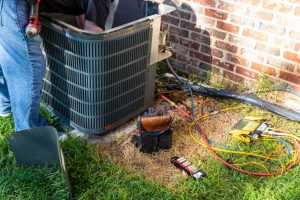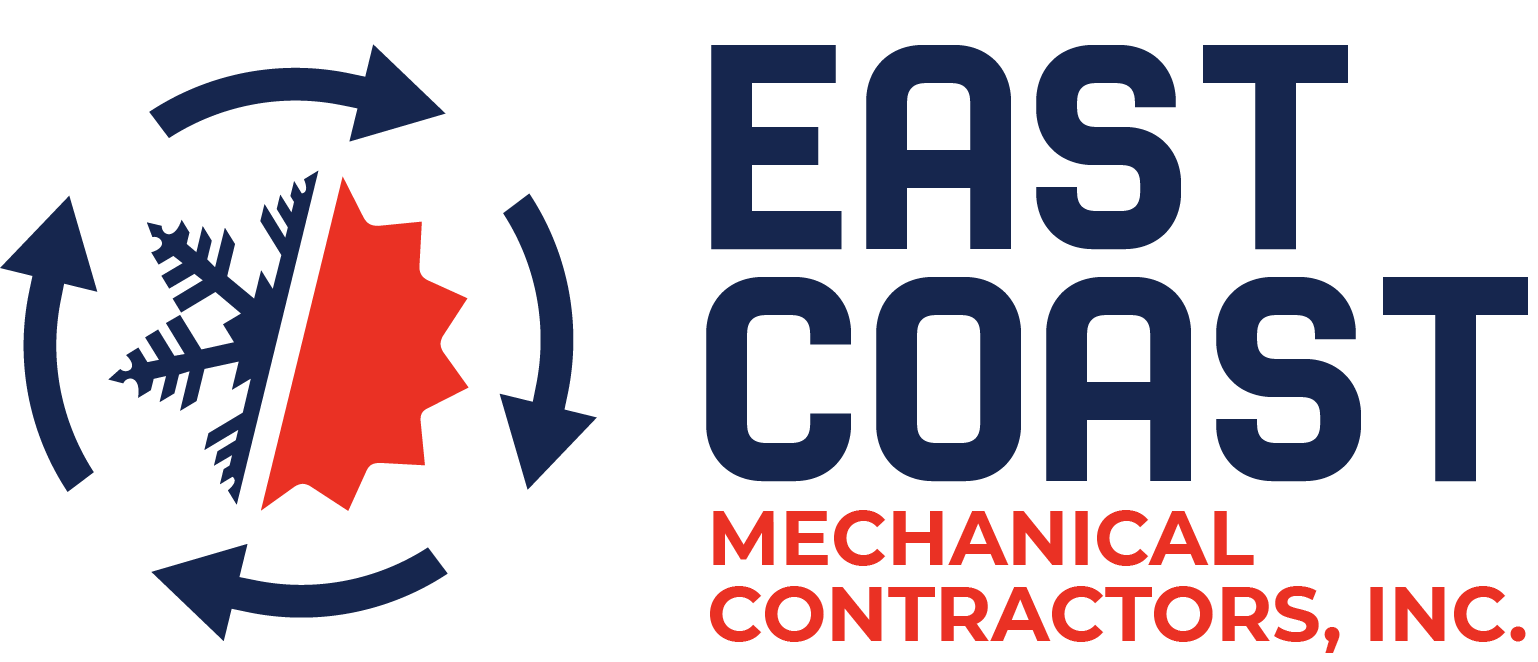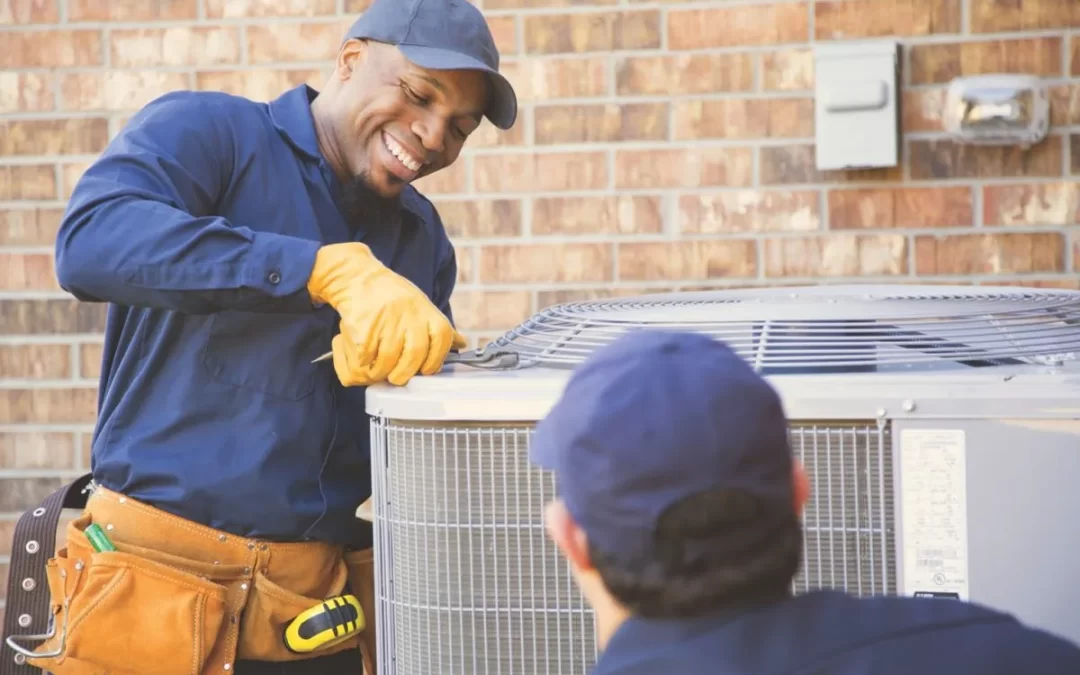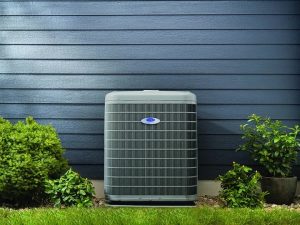As your HVAC system ages or begins to show signs of wear, you may find yourself asking a critical question: Should you repair or replace your HVAC system? It’s not always an easy decision, especially when you’re dealing with unexpected breakdowns, rising energy bills, or comfort inconsistencies in your home.
While repairs can be cost-effective in the short term, ongoing issues may be a sign that your system is nearing the end of its lifespan. On the other hand, replacing your system represents a larger upfront investment but offers improved efficiency, reliability, and long-term energy savings. This guide from ECMC HVAC will help you weigh the pros and cons of each option so you can make the smartest choice for your home and budget. Understanding the true condition and capabilities of your system can save you money, improve comfort, and reduce stress.
1. Consider the Age of Your HVAC System
One of the first things to evaluate is the age of your current HVAC unit. Most heating and cooling systems last between 10 to 15 years, depending on maintenance, usage, and system type. Some components, like the compressor or blower motor, may wear out earlier than expected, especially if routine maintenance has been skipped.
Repair may be a better option if your system is less than 10 years old and has received regular professional maintenance. Parts may still be under warranty, and the unit may have many years of service left. A simple repair, like replacing a capacitor or cleaning coils, could restore performance at a relatively low cost.
However, replacement is likely more cost-effective if your system is over 15 years old, no longer performs efficiently, or frequently breaks down. Advances in HVAC technology mean that newer systems offer significantly better energy efficiency, comfort control, and indoor air quality features.
Upgrading to a modern system ensures compliance with current energy regulations and refrigerant standards, which helps protect both your budget and the environment.
2. Evaluate Repair Frequency and Costs

If you’re calling your HVAC technician more often than usual, it may be a sign that your system is deteriorating. Occasional fixes are normal, especially with older equipment, but when repair visits become routine, the cost and inconvenience can add up quickly.
A general rule of thumb: If the repair costs exceed 50% of the value of a new system, replacement is often the better financial decision. Multiple small repairs over time can often equal or exceed the cost of a new, more efficient system.Also consider the type of repairs needed. Fixes involving the compressor, coils, or blower motors are often more expensive and suggest deeper issues. If your HVAC system can’t be trusted to get you through a full season without problems, a new unit may bring peace of mind and long-term savings.
3. Assess Energy Efficiency and Utility Bills
Older systems are significantly less efficient than newer models. If you’ve noticed a steady increase in your heating or cooling bills, despite no major changes in your energy usage, your HVAC system may be to blame. Systems that are more than 10 years old likely have outdated SEER (Seasonal Energy Efficiency Ratio) ratings, contributing to unnecessary energy consumption.
Upgrading to an energy-efficient system can reduce your monthly utility costs by up to 30%, especially if your current unit has a SEER rating below 13. Many modern systems now boast SEER ratings of 16 or higher and include advanced features like variable-speed blowers, multi-stage cooling, and smart thermostats.
These upgrades don’t just save money—they also provide more precise temperature control and a quieter, more comfortable indoor environment. You’ll experience fewer temperature swings and better airflow throughout your home.
4. Factor in Comfort and Indoor Air Quality
Is your home always too hot, too cold, or unevenly cooled? These are signs your system is struggling to keep up. Inconsistent temperatures, humidity problems, and excessive noise could all point to a failing HVAC unit that is no longer able to deliver consistent comfort.
Upgrading to a new system can drastically improve your home comfort. Modern HVAC units offer better zoning options, humidity control, and air purification capabilities, leading to healthier indoor air and a more consistent environment. This is especially important for homes with young children, seniors, or allergy sufferers.
Today’s systems can also be tailored to your lifestyle with programmable thermostats, smartphone integration, and sensors that automatically adjust settings based on room conditions. Better indoor air means fewer allergens, lower humidity, and a cleaner, more breathable home environment.
If you’ve recently renovated or expanded your home, your current system might also be improperly sized for your square footage—another common cause of performance issues that a replacement can correct.
5. Environmental and Rebates Considerations
If you’re environmentally conscious, replacing your old HVAC unit can have a major impact. New systems reduce carbon emissions and use eco-friendly refrigerants, such as R-410A, which do not deplete the ozone layer.
You may also qualify for state and federal rebates, tax credits, and utility company incentives for upgrading to high-efficiency models. These programs can significantly reduce your out-of-pocket expenses and make it easier to invest in a better system. In some cases, these incentives can cover thousands of dollars in upfront costs.
Check with your local utility provider or visit the ENERGY STAR Rebate Finder to explore current offers in your area. Taking advantage of these programs ensures you get the most value from your investment while helping the environment.
When Repair Makes Sense
- Your system is less than 10 years old and hasn’t had major issues.
- The repair is minor, such as replacing a capacitor, thermostat, or contactor.
- Your system is still under warranty, and parts/labor are covered.
- Your energy bills haven’t increased dramatically, and overall performance is good.
- You plan to move within a year or two and want to avoid a large expense.
In these cases, a targeted repair may extend your unit’s life by several years and provide a cost-effective solution in the short term.
When Replacement Is the Smarter Choice
- Your system is more than 15 years old, or components are nearing failure.
- You’re dealing with frequent repairs or rising maintenance costs.
- Repair costs are exceeding 50% of the system’s current value.
- You want to reduce energy consumption and lower your monthly bills.
- You’re planning a home renovation or need to expand your HVAC capacity.
- Comfort or air quality is consistently poor, despite ongoing repairs.
Replacing your HVAC system now may save you thousands in future repair costs, reduce your carbon footprint, and increase your home’s resale value. Plus, new systems offer warranties that give you peace of mind for the next decade or more.
Let ECMC HVAC Help You Decide
At ECMC HVAC, we understand that deciding to repair or replace your HVAC system is a major investment. Our team of experienced technicians will inspect your unit, discuss your concerns, and offer honest, data-driven advice based on your unique situation.
We provide a comprehensive evaluation that includes system performance testing, energy usage analysis, and cost-benefit comparisons. Whether you choose to repair or replace, our goal is to help you make a confident, informed decision.
We also offer expert diagnostics, free replacement quotes, and high-efficiency systems from leading brands that can improve your home’s performance and reduce your monthly expenses. Whether you need to repair or replace your HVAC system, ECMC HVAC is here to help.
Contact ECMC HVAC Today
Not sure whether to repair or replace your HVAC system? Contact ECMC HVAC today for expert advice and honest recommendations tailored to your home and budget.
📍 Address: 80 Leonardville Rd, Belford, NJ 07718
📞 Phone: (732) 936-9850
🌐 Website: https://ecmchvac.com
📧 Email: info@ecmchvac.com
🕒 Hours: Monday – Friday | 8:00 AM – 5:00 PM
Related Posts:
- How to Budget for HVAC Repairs and Replacements This Winter
- Emergency HVAC Repairs in New Jersey: When to Call for Help
- Why DIY HVAC Repairs Aren’t Usually a Good Idea


